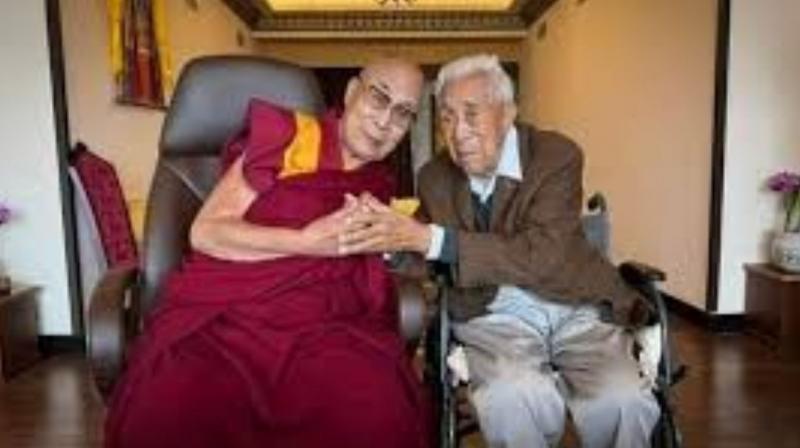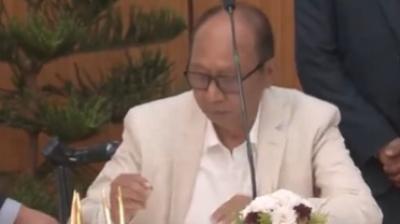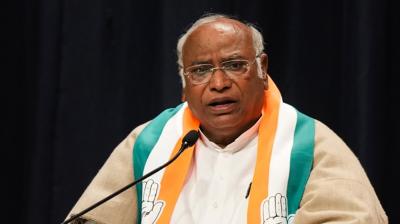
Gyalo Thondup, the elder brother of the 14th Dalai Lama, was a man of remarkable resolve and tenacity.
Gyalo Thondup: A Pillar of Tibetan Resistance and Diplomacy passes away latest news: Gyalo Thondup, the elder brother of the 14th Dalai Lama, was a man of remarkable resolve and tenacity. He breathed his last on February 9th at his home in Kalimpong, West Bengal, at the age of 97. And with his passing, Tibet loses a steadfast advocate whose life had been devoted to pursuing Tibetan autonomy and freedom.
He was born in 1929 in the village of Taktser but grew up in extraordinary circumstances because he had an elder brother, Tenzin Gyatso, recognized as the reincarnation of the Dalai Lama, hence leading a spiritual path, but Thondup was groomed for a different role. As he was not among those destined for the life of a monk like his siblings, he ventured out from monastic life to dabble into politics and diplomacy.
Thondup's life was filled with struggling against the Chinese occupation of Tibet. During the 1950s, he and the Central Intelligence Agency collaborated to orchestrate an armed uprising against the Chinese occupation. Despite this campaign's failure, his determination for the people remained unwavering. Pragmatic as well as gruff, Thondup contrasted thoroughly with the gentle and kind image of his brother. Yet, the two shared a common goal: to see Tibet free from Chinese rule.
Thondup's political acumen brought him into contact with influential figures worldwide. He negotiated with leaders such as India's Jawaharlal Nehru and China's Zhou Enlai and Deng Xiaoping. Despite controversies, including his involvement in smuggling monastic wealth out of Tibet, Thondup remained a resilient advocate for Tibetan rights.
In his later years, Thondup focused on peaceful methods to advance the Tibetan cause. His fluency in Chinese, English, and Tibetan allowed him to build enduring political and cultural institutions within the Tibetan exile community. His memoir, "The Noodle Maker of Kalimpong," offers a candid glimpse into his life and the challenges he faced.
Although Thondup briefly went back to Lhasa in 2002, he was never able to realize his wish to return with his brother. His legacy continues. His sacrifices and efforts had etched indelible lines on the Tibetan pages of history and inspired several generations to pursue the cause for autonomy and preservation of culture.
Gyalo Thondup is survived by his sons, Ngawang Tanpa Thondup and Khedroob Thondup. His life was a testament to unwavering commitment and resilience, and his contributions to the Tibetan cause will be remembered for generations to come.
(For More News Apart From Gyalo Thondup: A Pillar of Tibetan Resistance and Diplomacy passes away Stay Tuned To Rozana Spokesman)














